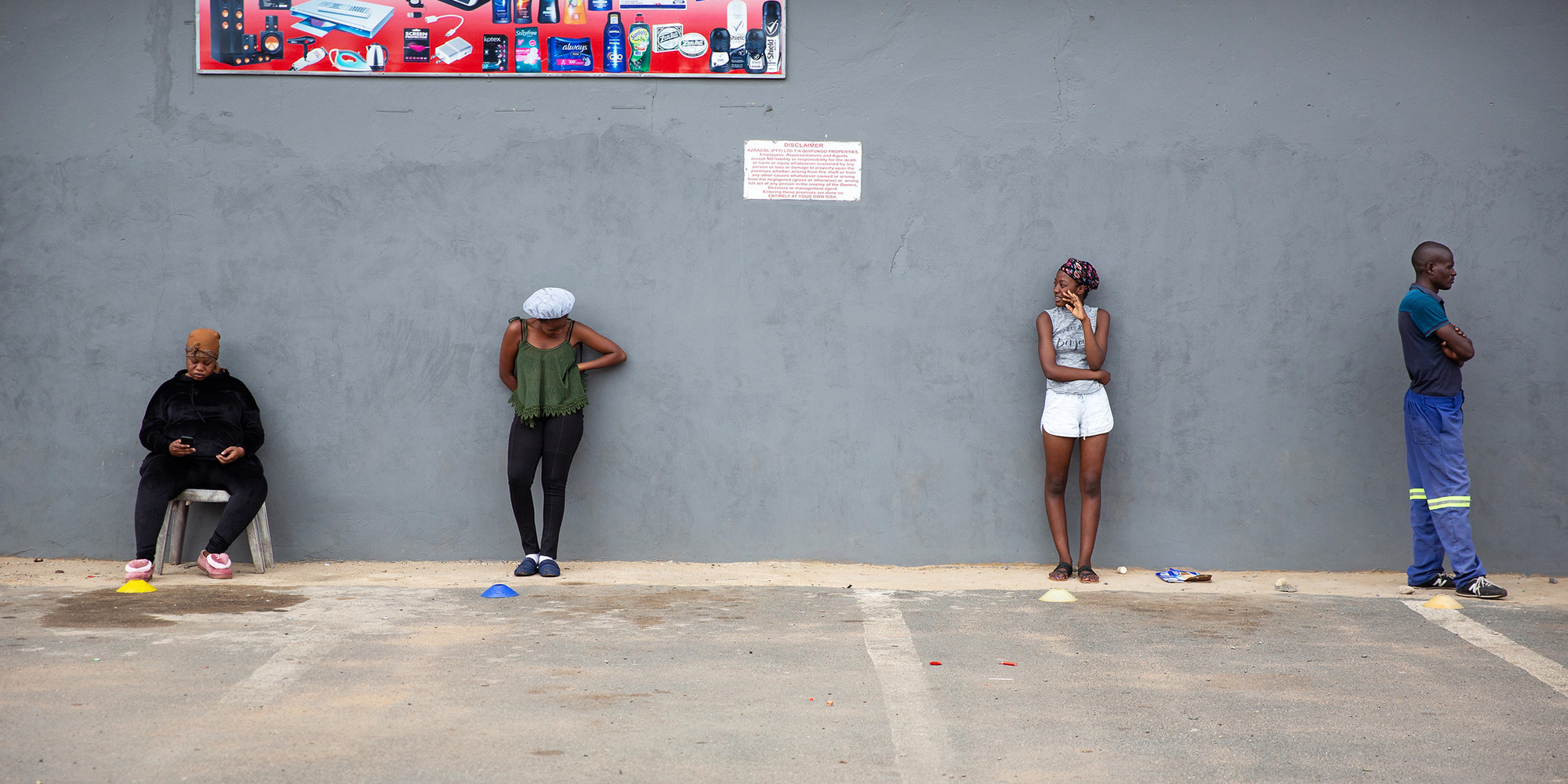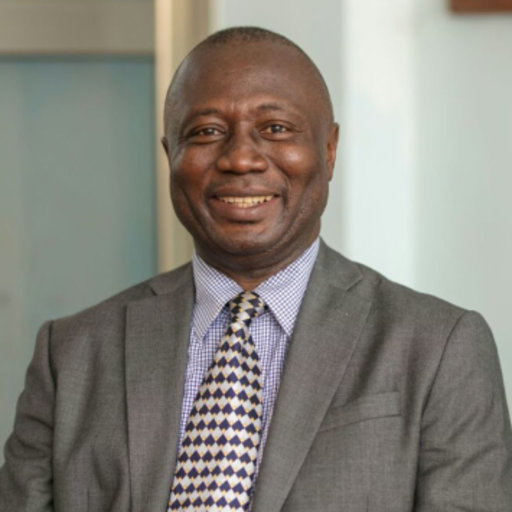
We are currently confronted with one of the biggest public health risks in living memory. As many parts of the world continue to struggle with the pandemic, and the scientific community and nations scramble for vaccines, there is ample evidence to show that COVID-19 is affecting a broad range of sectors, including international economic and trade activities, social and cultural relationships, health care and food security. COVID-19 has rapidly disrupted what is considered as a ‘normal’ way of life.
As such, COVID-19 has important implications for urban development in Africa. The pandemic has brought into sharp focus the way human settlements are planned, raising questions about how cities will be affected, particularly in the Global South, and particularly in Africa. Given that sound research is needed to inform sound policies on cities, the pandemic presents challenges for the conduct of urban research in Africa, particularly on how to collect evidence as a basis for evidence-based policy- and decision-making, especially with regards to urban residents. The key challenges for urban research in Africa remain how to develop research methodologies that allow data and evidence to be collected in ways that respect all the recommended health protocols, in the socio-economic and cultural context of massive informality in most cities of the Global South.
Cities and urban centres are home to most of the world’s population and are centres of economic growth and innovation. However, the high concentrations of people and activity in cities make them vulnerable to various stressors such as natural and man-made disasters. There is an existing body of scholarly research on the impacts of a wide range of disasters on cities, and the necessary planning, recovery, and adaptation measures that those disasters require. Many of the results have now been enshrined in global and continental agendas, including the Sustainable Development Goals (SDGs) and the African Africa Union Agenda 2063. As this is not the first time in human history that pandemics have affected cities and altered urban development research, it is important to learn lessons from the past, and for the scientific community to recognize how the management of cities has been changed by the pandemic, and will continue to be fundamentally altered by it in the future.
The need to advance the implementation of the 2030 Agenda and its 17 SDGs has become even greater. Actions that are taken within the next few years will determine whether post-COVID cities will be developed and managed in a more sustainable manner. Sound urban development research is required to support this important process. As cities start to recover, their main priority will probably be economic development. Critical issues for urban research will include building scientific evidence on the pandemic, space and densities in the urban context, and – most importantly – on poverty, informality and sustainable livelihoods, especially for the urban poor.
However, the pandemic also presents opportunities to “build back better”, and a return to normal will be considered a failure of urban researchers and policy-makers to learn the lessons of the past on how to improve human settlements and life in cities in particular. In 17th Century London older wooden structures were replaced with brick, believed to more impervious to disease carrying vermin, in order to offset the threat of pestilence. In the 19th Century, Parisian boulevards and streets were widened to improve sanitation and health, while New York made massive investments in sewer and sanitation systems, in the expansion of parks and green spaces, and in the development of building codes to fight infectious diseases like Tuberculosis and cholera. That these changes have endured is a sign of the effectiveness of the measures taken at the time in response to those pandemics. Given this situation, it is important to consider “every situation as an opportunity” to “build back better”.
Working Scientist podcast: How can diversity create better science?
Hear from Daniel Inkoom in this podcast featuring voices from the ISC’s network.
So what are the future research pathways?
Future urban development research needs more reflection in order to incorporate new dimensions linked to the impacts of the pandemic and to strengthen particular areas of learning, and these should be aligned to the SDGs. Urban development research should revisit housing and urban planning standards, sustainable livelihoods, community interaction and social space in an inclusive manner. There is a need to increase collaboration and transdisciplinary research, as well as digital competencies and infrastructures to promote online sharing, open data and open science, and to multiply sharing platforms to boost capacity.
There is also the need to refocus urban development research on essential issues that have emerged during the COVID-19 crisis, such as those around air quality, water systems and the value of nature to cities. These issues must be at the heart of research and should lead to direct operational advice to governments. Climate change and the collapse of biodiversity are central issues for consideration. For instance, improvements in air and water quality during lockdown periods once again highlight the significant environmental impacts of anthropogenic activities and provide a wake-up call to conduct research on environmentally friendly development pathways.
Themes relevant to urban research, such as the role of urban design and environmental factors in the spread of COVID-19 are not wholly conclusive, and given the evolving nature of the pandemic, new and different issues may emerge in the coming months. Future research needs to provide insights on issues that are currently under-studied but which have the potential to transform citizen behaviour and urban governance. The pandemic has also exposed old socioeconomic inequalities that exist in cities. These inequalities are especially significant in many African cities, where spatial inequalities in housing are prominent. Such inequalities threaten public health by making it difficult to enforce protective measures such as social distancing. Obviously, overcoming such inequalities is critical and should be prioritized in our future research work in Africa as cities recover from the pandemic.
Urban development research must, therefore:
Filiep Decorte, the Head of the Programme Development Branch of UN-Habitat stated that:
“Cities are at the heart of the COVID-19 impacts and solutions and there is a need to accelerate education and training of future professionals in order to address the built environment.”
A new push is required to revisit research and educational needs to better plan, design, build and manage cities. This reiterates the need for pragmatic and innovative urban development research approaches in Africa. Again, to quote the aim of the Africa Union Agenda 2063:
“Africa must consolidate the positive turnaround, using the opportunities of demographics, natural resources, urbanization, technology and trade as a springboard to ensure its transformation and renaissance to meet the people’s aspirations”.
We need to make use of existing opportunities to strategically confront and address the barriers of the COVID-19 pandemic to current and future urban research. This calls for a new breed of researchers that understand contextual issues, give real meaning to collaboration and transdisciplinary research, and are open to charting pathways that are – as yet – unknown.
In spite of the uncertainties surrounding COVID-19 and its consequences, the pandemic has brought to the fore the issue of urban vulnerability to pandemics, and generated renewed interest in the topic. Urban development research in Africa must therefore utilize the pandemic as an opportunity and a vehicle to achieve national and global development agendas, learning from the experiences of the past in the light of existing contexts in cities, especially those in the Global South.

Daniel Inkoom
Daniel K. B. Inkoom is a Professor of Planning at the Kwame Nkrumah University of Science and Technology (KNUST) in Kumasi, Ghana and Visiting Associate Professor at the University of the Witwatersrand in South Africa.
Acknowledgement
The author wishes to acknowledge the input of Michael Osei Asibey, a PhD researcher under his supervision at the Department of Planning, KNUST, Kumasi, Ghana.
Image: Physical distancing measures in Johannesburg, South Africa (IMF Photo/James Oatway via Flickr).